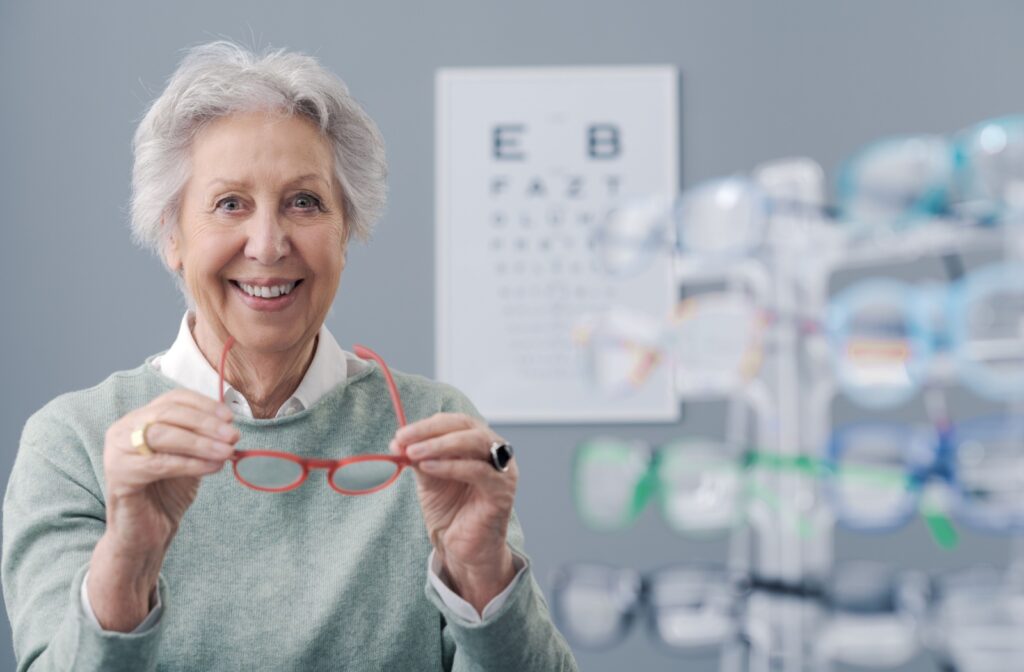Eye exams are essential for maintaining good vision and overall eye health. Whether you’re experiencing vision changes or simply keeping up with regular check-ups, understanding how these exams fit into your health insurance plan is crucial. The short answer is—it depends. Health insurance plans vary widely, and coverage for eye exams can be different based on several factors.
In the rest of this post, we’ll discuss how to understand your health insurance plan, so that you can make informed decisions about your eye care.
Why Are Eye Exams Important?
Before we dive into insurance details, it’s worth highlighting why eye exams are important:
- Early Detection: Eye exams detect issues like glaucoma, cataracts, and macular degeneration in these conditions early stages, before they have potentially irreversible effects on your vision.
- Vision Correction: Eye exams allow you to update prescriptions for glasses and contact lenses.
- Overall Health: Sometimes, eye exams can reveal other health problems like diabetes and high blood pressure.
Does Health Insurance Cover Eye Exams?
The short answer is—it depends. Health insurance plans vary widely, and coverage for eye exams can be different based on several factors.
Types of Health Insurance Plans
1) Employer-Sponsored Plans
Many employer-sponsored plans offer vision benefits as part of their health package. This often includes routine eye exams, discounts on eyewear, and sometimes even coverage for contact lenses.
2) Individual and Family Plans
These plans might not always include vision care as a standard benefit. You may need to purchase a separate vision plan to cover eye exams and other related services.
3) Medicare
Generally, Medicare doesn’t cover routine eye exams. However, it may cover exams if you’re at high risk for certain conditions (e.g., if you have diabetes).
4) Medicaid
Coverage varies by state, but Medicaid often includes eye exams for both children and adults. Check your state’s specific guidelines for more information.
Vision Insurance Plans
If your health insurance doesn’t cover eye exams, you can opt for a standalone vision insurance plan. Vision insurance typically covers:
- Routine eye exams
- Discounts on prescription glasses and contact lenses
- Coverage for specific eye surgeries and treatments
What To Look For In Your Policy
To understand whether your health insurance covers eye exams, look for the following keywords in your policy:
- Eye Exam Coverage: Check to confirm whether your plan includes coverage for routine eye exams. Routine eye exams are essential for maintaining overall eye health and detecting potential eye health issues early on.
- Health Insurance Benefits: Always make sure to carefully review the benefits summary of your health insurance plan. This detailed overview will inform you of the various medical services that are covered, including preventive care, emergency services, and prescription drugs. Understanding what your plan includes can help you make informed decisions about your healthcare needs.
- Vision Care: When reviewing benefits or services, be sure to search for a section specifically dedicated to vision care or eye care services. This part of the plan will detail the coverage available for eye exams, prescription lenses, contacts, and potentially even treatments for eye conditions.
Steps To Take
1) Read Your Policy
Take the time to meticulously examine your health insurance policy or vision insurance plan to gain a thorough understanding of the coverage it provides. Paying attention to the details will help you determine what types of medical visits, procedures, and vision care services are included, ensuring that you are fully aware of the benefits available to you.
2) Contact Your Provider
To ensure you fully understand the scope of your insurance coverage and to avoid any surprises in the future, it’s important to reach out directly to your insurance provider. Don’t hesitate to ask them to clarify any details or address any uncertainties you might have about what your policy includes.
3) Ask About In-Network Providers
To make the most out of your insurance plan, it’s important to verify that your eye care provider is included within your insurance network. This step ensures you can maximize your benefits, potentially saving you a significant amount of money on eye exams, glasses, contacts, and other vision-related expenses. Always check with your insurance and the provider before scheduling an appointment to avoid any unexpected costs.

Ready to Take Charge of Your Eye Health?
Understanding whether your health insurance covers eye exams can save you time and money and ensure that you receive the eye care you need. Keep in mind that coverage can vary significantly based on your specific plan and location. Always read the fine print, and consult with your insurance provider to get the most out of your health benefits.
Ready to take control of your eye health? Find your local Total Vision location, and check with your insurance provider to see how you can maximize your benefits. Remember, your eyes are your window to the world—make sure they’re well taken care of!



